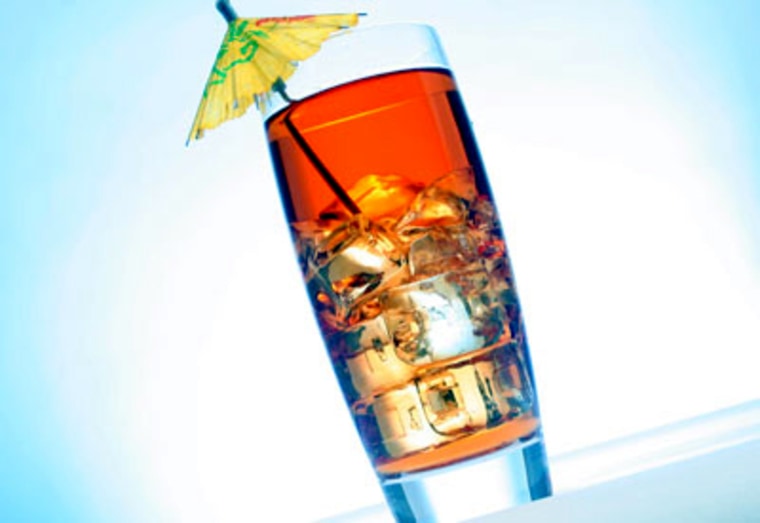If you're planning to celebrate St. Patrick's Day this year, you're probably thinking of hitting a parade, donning a shamrock and, most likely, downing a few pints.
But before you knock back that first green beer, take a minute to think about some of your habits when it comes to alcohol.
Do you still religiously drink liquor before beer to avoid getting sick? When you're feeling health-conscious do you choose red wine over beer? Is a pot of coffee and a fast-food burger and fries still your preferred method of sobering up?
Many of us learn these laws of drinking behavior in college or shortly thereafter, and unconsciously continue following them, never really questioning their effectiveness or the science behind them.
So we turned to experts on the effects of alcohol for the facts — some of which may surprise you.
Liquor before beer?
Even if you follow the old saying "Liquor before beer never fear; beer before liquor, never sicker," no doubt you've still felt lousy if you consumed a lot of either.
There is no evidence that drinking in a particular order alters how sick you get, says Julia Chester, assistant professor of psychological sciences at Purdue University.
Some research does suggest that the body absorbs carbonated drinks, such as a gin and tonic, more quickly than still beverages. It's also possible that drinking beer over some mixed drinks on an empty stomach might slow your intoxication, Chester says. It takes longer for the body to absorb a 12-ounce glass versus a 1.5-ounce cocktail, its equivalent in terms of absolute alcohol.
But ultimately, it's the amount you drink and your pace that will determine how you feel, not the order in which you do it.
Healthy choices
We've all heard red wine may reduce the risk of cardiovascular disease thanks to resveratrol, a substance found in the skin of grapes. But did you know beer may be good for you, too?
When consumed in moderation — in other words one 12-ounce glass a day for women and two for men — research has shown that the silicon in beer may be associated with better bone health, says Maureen Storey, director of the Center for Food Nutrition and Agriculture Policy at the University of Maryland.
Buyer beware: Excessive consumption can lead to bone loss.
The ultimate truth serum
Who hasn't said something stupid after having a few too many? But if you believe the old Latin saying in vino veritas, or "truth in wine," you might think those drunken comments reflect a person's real feelings.
Thomas Kimball, associate managing director of Texas Tech's Center for the Study of Addiction and Recovery, says alcohol does lower people's inhibitions. Drinking, along with drug use, also increases your risk for experiencing violence and doing things sexually you might not otherwise.
"I think it increases your risk to go against your own moral code," Kimball says. "Is that your true self? No. I would say that's your drunk self or high self."
Eat up
Eating after a few drinks, it turns out, is a good way of sobering up. Any food you put in your stomach will slow your body's absorption of alcohol, Chester says. But solid food works better than liquid foods, like soup, and carbs and high-protein foods may be a better choice than fatty foods.
Having a hearty meal before drinking, or eating and drinking at the same time, also can help prevent you from getting sick.
A cold shower and pot of coffee
The time-honored way of helping someone sober up on TV and in the movies is filling them with coffee and giving them a cold shower. But all these techniques are likely to do is create a cold and alert drunk, the experts say.
While research has shown that caffeine can counteract some of the effects of alcohol in terms of a handful of cognitive tasks, a person's reaction time is still going to be slower than normal, Chester says. Giving a drunken person a cold shower is a bad idea because alcohol is already reducing their body temperature.
The one thing that always helps alcohol get out of the system, Kimball says, is time.
